#Pale Fire
Text
"[...] human life is but a series of footnotes to a vast obscure unfinished masterpiece."
— Vladimir Nabokov, Pale Fire, 1962
#Vladimir Nabokov#Pale Fire#literature#classic literature#russian literature#spilled ink#quotes#book quotes#literary quotes#quoteoftheday#lit#books#books and libraries#poetry
230 notes
·
View notes
Note
Pale Fire poem is bad, right?
No, not exactly. The actual poetry is still enjoyable because John Shade's narrative voice is compelling, and the elegance of the poem's structure sets it apart from doggerel verse. It resembles Nabokov's own English language poetry, but the difference is that “Pale Fire” is (by design) inextricable from the context of the novel, Pale Fire. When you try to analyse it on its own, it becomes somewhat banal, an elevated iteration of Footprints in the Sand: a man reflects on his life and searches for meaning in the wake of a tragic loss, suspecting his dead daughter is trying to communicate with him, but ultimately concludes that even if the dead do speak to us from beyond, it would not be through visions and hauntings, but in ways that surpass human imagination by orders of magnitude.
John Shade is a fine poet—but Nabokov is a brilliant novelist, so both Shade and his poem became moving parts in a clockwork universe. Would you think twice about his poor Aunt Maude if you hadn't deciphered his verse about her aphasia and linked it to the transcription (pada ata lane pad not ogo old wart alan ther tale feur far rant lant tal told.¹) from Hazel's “failed” seance that Kinbote dismissively included in his footnotes?
¹ The bolding is mine, to show the three repetitions of “atalanta” (both forward and backward) that correspond with Pale Fire's motif of threes —Shade wrote the poem in three weeks, Kinbote wants you to read the commentary thrice for every time you read the poem, the Zemblan fairy tale that mentions three hundred camels and three fountains, etc.
The transcription itself is from the third night of Hazel's séance. It's a message from Maude's ghost, who remains afflicted by aphasia. Brian Boyd describes it more succinctly than I can:
But as we reread we can now see instead a message to Hazel to tell her "father (pada: pa, da, padre) he is not to go across the lane to old Goldsworth's, as an atalanta butterfly dances by, after he finishes 'Pale Fire' (tale feur), at the invitation of someone from a foreign land who has told and even ranted his tall tale to him.
So the ghost is not only real, but is—coming back to the clockwork universe metaphor—also unwittingly moved by the same metaphysical harmonic oscillator as the rest of the characters, a small part of a mechanism so complex that the paranormal is merely another component. You can't derive any of that from the verse, but when you reread it within the context of the book, you see all the intricate ways that this force operates within the poem—that's when it becomes good.
#there's also the fact that it's impossible for writers to write characters who are better writers than they themselves are#i have heard it said that when god created the universe‚ He had to exhale and get a little smaller‚ just to make room to work properly#nabokov the poet had to exhale to create john shade the poet#pale fire#vladimir nabokov#anonymous#assbox
56 notes
·
View notes
Text

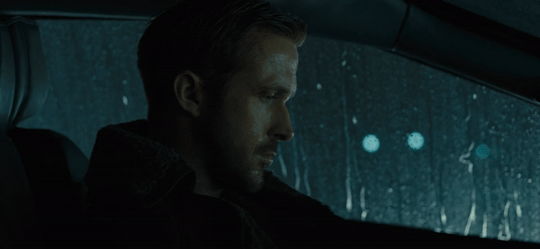
NO TEARS IN THE RAIN
-BLADE RUNNER 2049 dir. Denis Villeneuve
#gifs#filmgifs#movie gifs#movies#films#cinematography#film gifs#ryan gosling#blade runner#blade runner 2049#officer k#ana de armas#joi#action#thriller#pale fire#do androids dream of electric sheep?#denis villeneuve
167 notes
·
View notes
Text
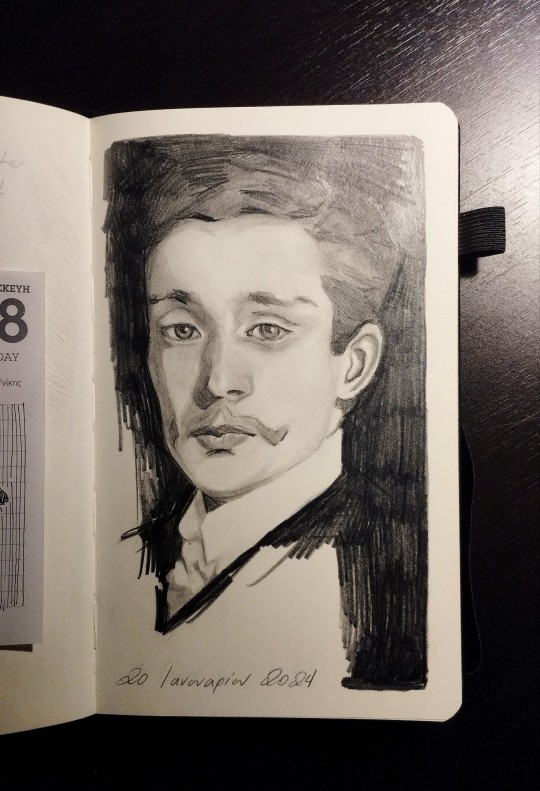

I haven't posted in a while because exams have taken over my life.
#photography#books#literature#reading#studyblr#studyspo#bookblr#books & libraries#currently reading#aesthetic#art#john singer sargent#dark academia#vladimir nabokov#pale fire#🥀
37 notes
·
View notes
Text
What moment in the gradual decay
Does resurrection choose?
Vladimir Nabokov, excerpt from Pale Fire
60 notes
·
View notes
Text
Charles Kinbote walked so that Taylor Swift fans interpreting her lyrics as her coming out as gay could run
68 notes
·
View notes
Note
what do you think of books with strange prose styles/formating? have you read any? and if so, which are your favorites? (slaughter house 5, house of leaves, if on a winters night a traveler, ect.)
I love books with strange prose styles. I always think of Vladimir Nabokov's Pale Fire, an entire novel written in the footnotes of a poem, written by a man who thinks his voice is authoritative, who might be an expert on the man who wrote the poem, or might be completely out of his mind. I love hunting footnotes and giggling at inter-text references. It isn't for everyone, but novels that take work on the part of the reader are some of my favorite to read. I find them stimulating, fun, and fascinating.
(With one caveat: there has to be a reason for the formatting. You can tell when there's purpose behind the choice vs. when an author just wanted to be "interesting." Too many novels are difficult to read simply because the author wanted to stand out.)
One of my favorites is called The Dictionary of the Khazars by Milorad Pavić. I wrote my senior thesis on this wild book that is in the format of a dictionary divided into three parts. The overarching idea: there once were a people called the Khazars, until they disappeared. The Christians, Jews, and Muslims all have arguments and interpretations of who they were, and where they went. They were a people who seemed to be able to travel through dreams. Items related to their civilization seem to disappear easily. You can read in any order. It's a dictionary after all!
Everything in this book is intentional. I wrote a large part of my thesis on the parts of the book that are mysteriously italicized. The book makes fascinating points about memory, storytelling, assimilation, and most of all, how history is interpreted and retold.
Another favorite is Hopscotch by Julio Cortázar, translated by Gregory Rabazza. It's a sad, pretty novel about an Argentine ex-pat and his group of bohemian friends, and the disappearance of his mistress. You can read it in a number of ways. Cortázar suggests the "hopping" order, where at the end of each chapter it tells you where to turn to next.
But if you take his advice, you miss a chapter, chapter 55, which no other chapters lead to. Is it the ending? Does it not matter? Why is the same text in chapter 129? And if you skip what he called the "expendable chapters," you lose whole storylines! It makes the novel a game, but it also makes you wonder what matters, and why, and which parts of a story actually matter.
House of Leaves is on my list!
30 notes
·
View notes
Text
Plated with poetry, armored with rhymes, stout with another man's song, stiff with cardboard, bullet-proof at long last.
Nabokov
13 notes
·
View notes
Text
"Solitude is the playfield of Satan."
— Vladimir Nabokov, Pale Fire, 1962
#Vladimir Nabokov#Pale Fire#literature#russian literature#classic literature#spilled ink#book quotes#quotes#literary quotes#lit#books#books and libraries#quoteoftheday
253 notes
·
View notes
Note
So so sorry for scampering through your pale fire tag but I read it about 3 months ago and oh my god
The thing nobody tells you about books like Pale Fire is that once you've read them, you receive a permanent "divided by 1" debuff, in that you are technically the same person you were before you started, but now a process is forever taking place.
#good books will make you feel like the final girl in the epilogue of a horror movie#time has passed. you are fundamentally changed but life is slowly returning to normal. you even catch yourself smiling at a dumb joke#but then the camera pans out and the entire scene is taking place inside freddy kreuger's hat#finishing pale fire awards you one (1) (just the one) second of the familiar satisfaction and then it's like#THEN WHO WAS NARRATOR#pale fire#vladimir nabokov#abyssaldyke#assbox
92 notes
·
View notes
Text
Counterpoint, a collection





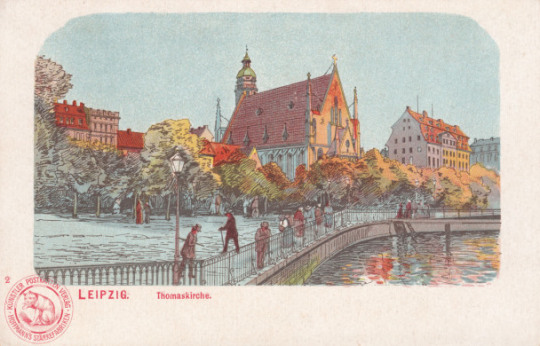
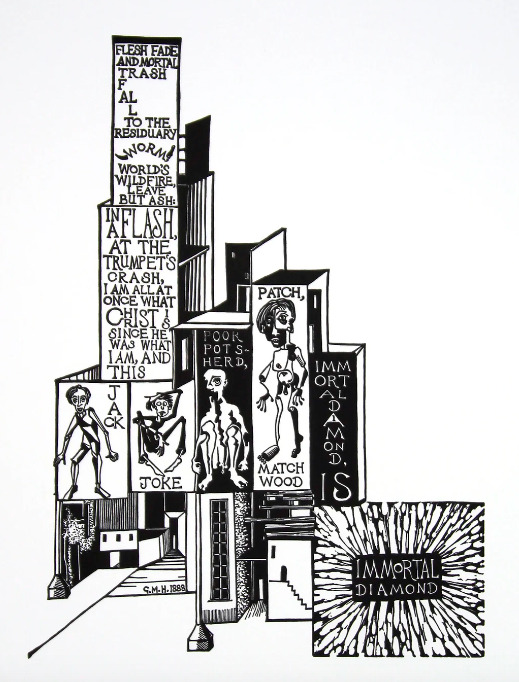
Bach's Fugue 4 in C# minor from Well-Tempered Clavier I, autograph
Gaudy Night, by Dorothy L. Sayers
Bach's Fugue 4 in C# minor from WTC I, performed by Kimiko Ishizaka
Pale Fire, by Vladimir Nabokov
Uncredited illustration from The New Yorker, March 6, 2023
An Essay on Man, Alexander Pope
Thomaskirche, Leipzig, postcard
Original Print: That Nature is a Heraclitean Fire (Gerard Manley Hopkins), from The Wytham Studio
#Counterpoint#johann sebastian bach#gerard manley hopkins#gaudy night#leipzig#thomaskirche#well-tempered clavier#fugue#pale fire#vladimir nabokov#alexander pope#music#web weaving#dorothy l sayers
44 notes
·
View notes
Text
BLADE RUNNER 2049 & PALE FIRE - ANALYSIS

SPOILERS AHEAD
NOTHINGNESS / EMPATHY

"…And blood-black nothingness began to spin" (704)
.
.
In both Blade Runner movies, the protagonists (Rick Deckard, and Officer K) have to go through the Voight Kampff test which is an “anti-empathy” test given to officers by their police department. This test uses certain stimuli to provoke an emotional response from the recipient since replicants are supposed to lack human emotion, especially empathy. In Blade Runner 2049, Officer K’s test intertwines a pre-memorized section with the stimulus questions.
Officer K’s baseline is taken from a section of the poem “Pale Fire” by Vladimir Nabokov. This poem holds significance because it contains themes of reality versus semblance, a prominent theme in the movie. The poem is meant to suggest that, just like humans, replicants are also capable of connecting with one another and perceiving emotion.
FOUNTAIN / REALITY

"And dreadfully distinct Against the dark, a tall white fountain played…" (707)
'"She told her interviewer of "The Land Beyond the Veil"... at the end she mentioned a remote Landscape, a hazy orchard - and I quote: "Beyond that orchard through a kind of smoke I glimpsed a tall white fountain - and awoke."' (750)
.
.
A poet in Pale Fire, named John Shade, wrote that he saw a "tall white fountain" during a brush with death. Later, Shade reads a magazine about a woman who also came close to death and had a similar vision of a "tall white fountain." Shade interprets this as proof that souls can pass onto an "afterlife." Intrigued, Shade asks the woman about the similarity and she replies saying that "'there's one misprint - not that it matters much: Mountain, not fountain.'" Shade’s misunderstanding surrounding his experience and the woman’s story being more than what it actually was is also a theme reflected in Blade Runner 2049.
Officer K thinks that he is the "chosen one" throughout the film but towards the end of the movie, he learns that he isn't the "chosen one" after all. This realization has Officer K feeling disillusioned and it shatters his perception of reality.
These events have made the two characters feel as if they have lived a false reality. Misunderstanding something as greater than it actually is, is a common theme in films and literature. More specifically Neo-Noir films and dystopian novels, where a cynical, hopeless character, must confront their feelings of uncertainty in or about their lives and the world that they live in.
.
.
all quotes are from "Pale Fire" by Valdimir Nabokov
#the blade runner#blade runner#blade runner 2049#denis villeneuve#officer k#Ryan gosling#ana de armas#movies#films#neo-noir#neo noir#cyberpunk#pale fire#vladimir nabokov#books#analysis#movie analysis#book analysis#do androids dream of electric sheep?#movie gifs#gifs#filmgifs#cinematography#mywritingtag#joi#rick deckard#joe
90 notes
·
View notes
Text
anyone else the shadow of the waxwing slain by the false azure in the windowpane or is it just me and this guy
85 notes
·
View notes
Text
She had strange fears, strange fantasies, strange force
Of character—
Vladimir Nabokov, excerpt from Pale Fire
62 notes
·
View notes
Text
Human life is but a series of footnotes to a vast obscure unfinished masterpiece.
Vladimir Nabokov, Pale Fire
#Vladimir Nabokov#Pale Fire#life#life quotes#human life#footnotes#masterpiece#Russian literature#quotes#quotes blog#literary quotes#literature quotes#literature#book quotes
12 notes
·
View notes
Text
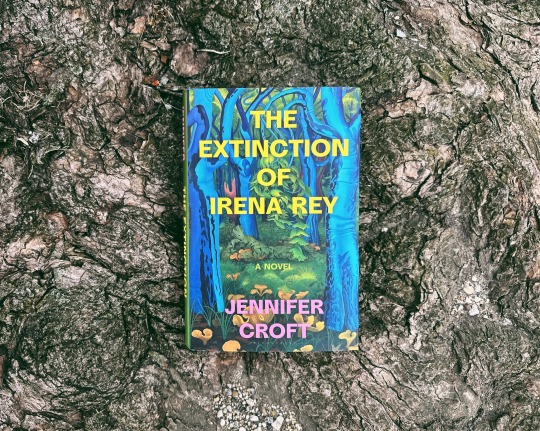
From around the world, Irena Rey's translators make their way to Białowieża Forest. They're ready to translate her magnus opus in their carefully practiced pattern: sitting in the midst of that strange forest, the last bit of the primeval forest that once spanned Europe, they will all translate together, under Irena's watchful eye. But shortly after their appearance, Irena disappears. In her absence, they'll be desperate to find meaning (as translators generally do) in all the things she's left behind, and their search blooms into a feverish mess of conflict, confusion, and the slow reveal of secrets the author's been keeping from them this entire time.
The Extinction of Irena Rey by Jennifer Croft starts slowly, but builds steam. It's written by "Eli," the Spanish translator, who is perhaps the most devoted to Irena and her rules, who is horrified when her fellow translators begin to snoop, edit, rebel, and reveal information they'd been holding back. In a swirl of fungi, ethical quandaries, and cult-like worship, Eli writes a novel in Polish that has been translated for us, years later, into English by Alexis, one of her fellow translators.
Because increasingly, we realize: we can't trust Eli, disturbed the others' insistence on breaking her united, clean vision of Irena and of who they are to each other. But if we can't trust her, why would we be able to trust her translator, English herself, the character that Eli hated the most? In this literary entanglement reminiscent of Pale Fire by Vladimir Nabokov, we realize more and more with each chapter that maybe Eli isn't telling us the truth, that maybe Alexis is editing a little too freely.
Once that ambiguity was introduced, I was hooked. The beginning was slow, but I'm okay with that. We have to think we can trust Eli and Alexis for just long enough to begin to doubt. And then you can see the riddles between the lines, the signals Eli's missing, the misinterpretations floating through the group. It's a vivid, fascinating novel and psychological thriller about their slow unspooling.
Content warnings for violence, gaslighting.
#the extinction of irena rey#jennifer croft#new releases#translation#literary fiction#my book reviews#pale fire
11 notes
·
View notes